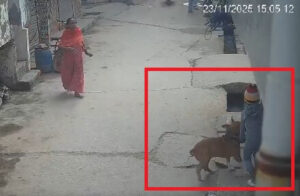Weather woes: Doctors suggest precautions to beat the chill

Photo: IANS
Photo: IANS
New Delhi: As the cold wave has gripped entire north India, doctors suggest precautions to be taken to keep oneself safe and healthy.
Speaking to IANS, Amarinder Malhi, a senior resident doctor at AIIMS, said: “Most patients are coming with complaints of upper respiratory tract infection (URTI), lower respiratory tract infection (LRTI), hypertension, stroke and myocardial infarction.”
He said that: “In order to save oneself from these diseases, it is important to keep yourself warm. People should drink four to five glasses of lukewarm water everyday. Use oil heaters instead of conventional heaters because they leave the atmosphere dry. But primarily keep yourself warm by covering your body with warm clothes, gloves, caps and socks, etc.”
According to Malhi, most affected people in this cold wave were coming from Uttar Pradesh and Bihar. “We are receiving most patients from Uttar Pradesh, Bihar, Himachal Pradesh and Punjab who are mostly children, infants and elderly people.”
Talking about the arrangements that the hospital has made to accommodate more patients, keeping in view the increased number of patients due to severe cold conditions, the doctor said: “We have arranged extra blankets, bedding and heaters to serve more patients.”
Since the cold wave was severe, doctors were suggesting precautions and care to be taken, especially for the elderly and the chronically ill patients.
According to doctors, aged people and infants are prone to illness during the winter and require extra care.
For the morning walkers, doctors have a word of caution: “Walk in the morning, but after sunrise when it becomes a little warmer.”
According to the Meteorological Department this cold wave was going to persist for some more time.
“It is a long spell, very unique in nature, and would affect entire northwest India,” Rajendra Jenamani, senior scientist at the India IMD told IANS.
He added: “Normally a spell of severe cold weather stretches to five or six days. But this year, since December 13, the temperature continues to dip…. This is unique.”
IANS





